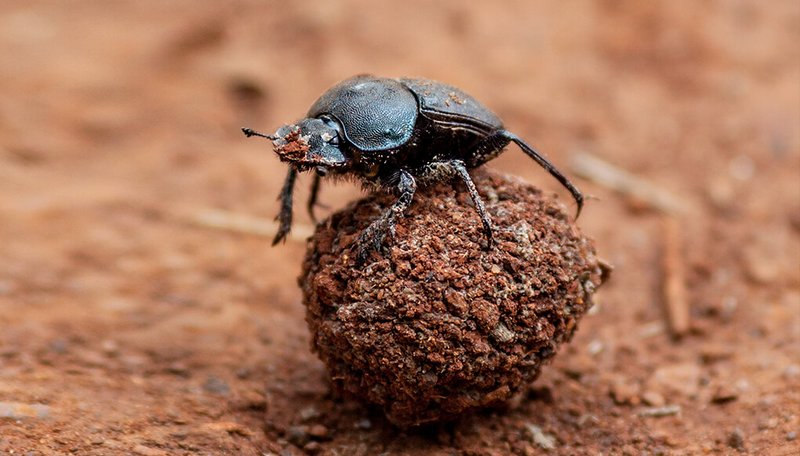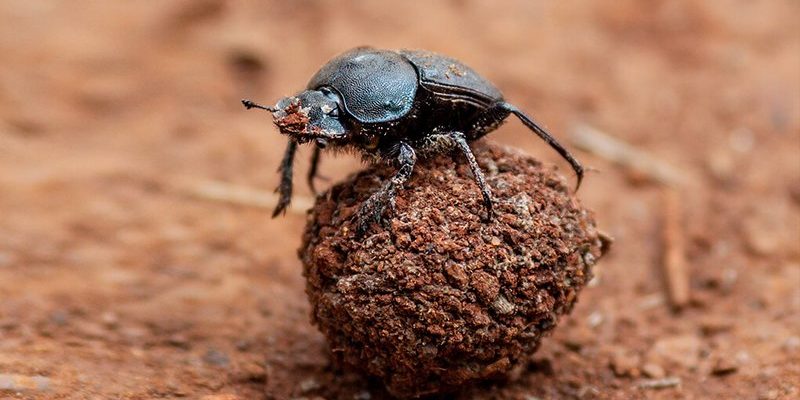
Picture strolling through a sunny field and spotting a beetle rolling a ball of dung. It’s both amusing and kind of impressive, right? Dung beetles, like the well-known species *Scarabaeidae*, have a quirky habit of using animal droppings for food and to lay their eggs. While this might sound gross, it’s crucial for nutrient cycling in nature. In this article, we’ll explore the dung beetle’s behavior, their interaction with humans, and whether there’s any cause for concern.
What Are Dung Beetles?
Dung beetles are a subgroup of insects belonging to the Scarabaeidae family. They come in various shapes and sizes, but most are easily recognizable by their dark, rounded bodies and a knack for rolling dung. There are about 5,000 species globally, and they typically thrive in environments rich in animal waste, like farms and grasslands.
These beetles have a unique lifestyle. They can be divided into three main groups: roller beetles, which roll dung into balls; tunneling beetles, which dig tunnels in the dung; and dwellers, which live directly in the dung. Their primary role is recycling animal waste, which benefits ecosystems by enriching soil and providing habitats for other creatures. So, while they may look a bit odd, they serve an essential purpose.
Are Dung Beetles Dangerous? Debunking Myths
You might wonder if these little critters can harm you. The truth is, dung beetles are not dangerous to humans. They don’t bite or sting, and they’re generally quite shy. Their focus is solely on dung, not on bothering people. Think of them as the clean-up crew of nature—a bit like the janitors of the animal kingdom who are more interested in their work than interacting with humans.
However, their association with animal waste can make them seem a bit off-putting. It’s easy to view them with disgust, especially since they spend their time rolling around dung. Despite this, they don’t pose any health risks. In fact, some species are even known to aid in the breakdown of pathogens found in feces, making them important for public health and hygiene.
The Benefits of Dung Beetles
Dung beetles offer several benefits that might surprise you. First, they help with nutrient recycling. By breaking down waste and burying it in the ground, they enhance soil fertility, promoting plant growth. This is especially valuable in agriculture, where healthier soils lead to better crop yields.
Secondly, they assist in controlling pests. Dung beetles consume waste that might otherwise serve as breeding grounds for flies and other pests. By dealing with animal droppings, they help keep the insect population in check. It’s like having a natural pest control service that doesn’t require any harmful chemicals.
Finally, dung beetles support wildlife. Many animals depend on dung for food. By breaking it down, dung beetles create a nutrient-rich resource for other species to thrive. So, the next time you see one of these beetles in action, remember that it’s all part of a larger ecological dance.
Interactions with Humans
Now that we know dung beetles are harmless, let’s look at how they interact with humans. In many cultures, dung beetles are celebrated for their role in agriculture and ecological balance. They’re often seen as symbols of good luck or prosperity. In ancient Egypt, the scarab beetle was revered and even associated with the sun god Ra.
That said, some people might cross paths with dung beetles while engaging in outdoor activities like camping or hiking. You might discover them while exploring grassy areas or checking out a nearby farm. In these cases, it’s important to respect their space. Dung beetles are simply doing their job, and they don’t want to be your new best friend!
How Dung Beetles Help the Environment
The ecological contributions of dung beetles extend beyond soil enrichment. For instance, they help reduce greenhouse gases. When dung decomposes on the surface, it releases methane, a potent greenhouse gas. Dung beetles get to work by burying the dung, which not only cuts down on methane emissions but also fosters healthier soils.
Additionally, their activities enhance biodiversity. By promoting healthy ecosystems, dung beetles help various species thrive. They create habitats for other insects, worms, and small mammals. These interactions contribute to a lush, vibrant ecosystem that supports a wide array of life.
Imagine a world where dung beetles didn’t exist—animal waste would pile up, leading to less fertile soils, more pests, and reduced habitats for other creatures. So, it’s safe to say that dung beetles play a vital role in maintaining ecological balance.
In summary, dung beetles may seem a bit weird at first, but they’re truly remarkable creatures that are harmless to humans. They’re nature’s recyclers, turning waste into fertile soil and supporting a thriving ecosystem. The next time you encounter one of these little beetles, remember their important role and consider giving them a little respect.
So, are dung beetles dangerous? Definitely not. They’re here to help, not to harm. Just think of them as the unsung heroes of the animal kingdom—working quietly behind the scenes while we enjoy the fruits of their labor.

